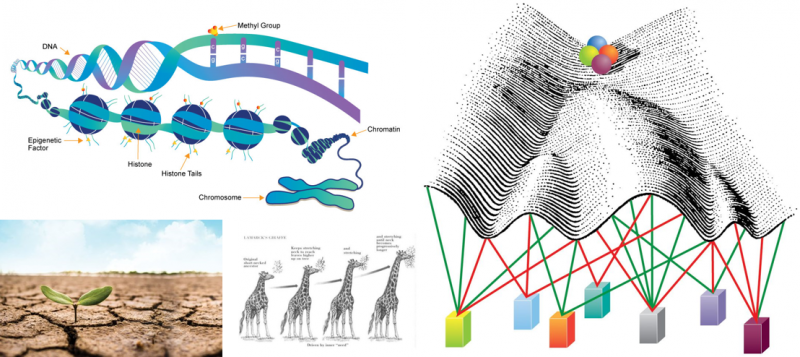 What we are learning
What we are learning

After the major scientific advances in epigenetics during the last decade, it is now clear that epigenetic mechanisms play an important role in gene regulation, genome integrity, phenotypic plasticity, reproduction, and even evolution with the stable transmission of certain epigenetic marks over generations. This role seems even exacerbated in plants, sessile organisms that cannot escape environmental changes and stresses, and therefore evolved molecular mechanisms to cope with such constraints. The aim of this course is to deliver the current knowledge on plant epigenetics, its role in gene regulation, transposable elements silencing, stress response and its stable transmission through mitosis and even meiosis. It will involve theoretical lectures by internal and external experts. The practical classes will be based on research cases and will include biochemistry, molecular biology and bioinformatics.
 How we are learning
How we are learning
As much as possible, the course involves evidence-based and modern methods of teaching: active learning, peer learning, and constructive alignment, meaning that the teaching activities and the final exam are tailored towards well-defined intended learning outcomes. These learning outcomes encompass several orders, from remembering to creating, based on Bloom’s taxonomy of learning. In simple words, the major intended learning outcome of the course is for the students to be able to critically think for themselves when it comes to plant epigenetics.
Also, plant epigenetics is rather a recent field of research, and therefore the related knowlege is in constant and fast evolution. By inviting a wide range of experts to teach in the course, we aim at having the course as close to current research as possible, and as far as possible from text books.
This applies to practical classes too, that we designed as “mini research projects” with a biological question, an experimental strategy, and a scientific report written by students in the form of a scientific article.
In a word, we, the pedagogical team, have ambition for the students: at the end of the course, they will be able to understand and lead current research on the topic of plant epigenetics.
 The pedagogical team
The pedagogical team
The team is large enough to encompass a wide range of experts, ensuring the most up-to-date and cutting-edge teaching provided to the students.
| Claude Becker, University of Munich (LMU), Germany | Iva Mozgová, Institute of Plant Molecular Biology, České Budějovice | ||
| Clément Lafon Placette, Charles University, Prague | Lukáš Fischer, Charles University, Prague | ||
| Iris Sammarco, Institue of Botany & Charles University, Prague | Stéphane Maury, University of Orléans, France | ||
| Isabel Bäurle, Potsdam University, Germany | Vojtěch Čermák, Charles University, Prague |
 Practical details
Practical details
The course runs in the winter semester.
To enroll, connect to the SIS and click “enroll”: https://is.cuni.cz/studium/eng/predmety/index.php?do=predmet&kod=MB120P…
Once you have enrolled, we will send you all the details regarding the schedule, content, etc. :)
If you encounter any issue, feel free to contact us at lafonplc (at) natur.cuni.cz
